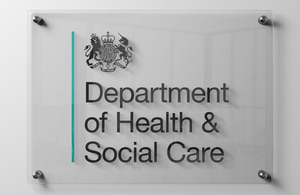The U.K. Department of Health and Social Care unveiled an ambitious artificial intelligence initiative today that will screen nearly 700,000 women for breast cancer, marking a significant shift in the country’s approach to cancer detection and healthcare technology deployment.
The £11 million government-backed trial, dubbed EDITH (Early Detection using Information Technology in Health), will operate across 30 testing sites nationwide. The program aims to streamline the mammogram screening process by reducing the number of specialists needed to review each scan from two to one, potentially freeing up hundreds of radiologists to address rising cancer rates and reduce waiting lists.
The trial launches against a backdrop of sobering statistics: breast cancer affects approximately 55,000 people annually in the U.K., making it the most common cancer among women. The current screening program, which invites women aged 50 to 71 for screenings every three years, conducts about 2.1 million breast cancer screens yearly and prevents around 1,300 deaths.
Health and Social Care Secretary Wes Streeting, himself a cancer survivor, emphasized the urgency of the initiative. “With record numbers of people diagnosed with cancer, and Lord Darzi finding that cancer survival is worse in this country than our peers, I know that urgent action is needed to save lives and improve patient care,” he said.
The trial is part of a broader healthcare transformation strategy outlined in the government’s 10 Year Health Plan and follows the recent AI Opportunities Action Plan, which has already attracted over £14 billion in investment since its launch last month. The initiative coincides with the development of a new National Cancer Plan, for which the government is launching a call for evidence from cancer experts, patients, and medical professionals.
Looking ahead, the government has committed to improving cancer diagnosis timeframes. Starting March 2026, approximately 100,000 more patients annually will receive their cancer diagnosis or all-clear within 28 days of referral, while about 17,000 additional patients will begin treatment within two months of diagnosis. These changes aim to meet NHS Constitution cancer waiting time standards, some of which have remained unmet since 2015.
Professor Lucy Chappell, Chief Scientific Adviser at the Department of Health and Social Care and CEO of the National Institute for Health and Care Research, described the trial as “a significant step forward in the early detection of breast cancer,” highlighting its potential to deliver faster, more accurate diagnoses while reducing NHS burden.


